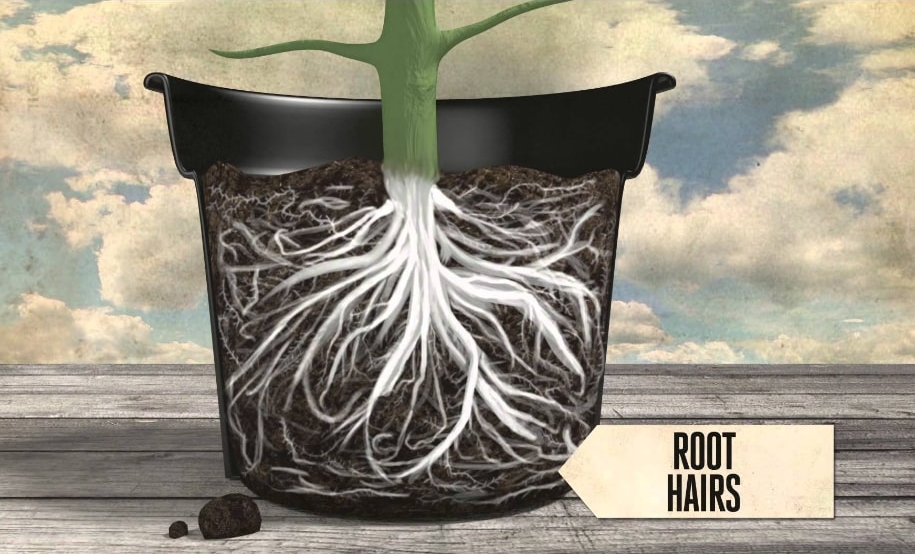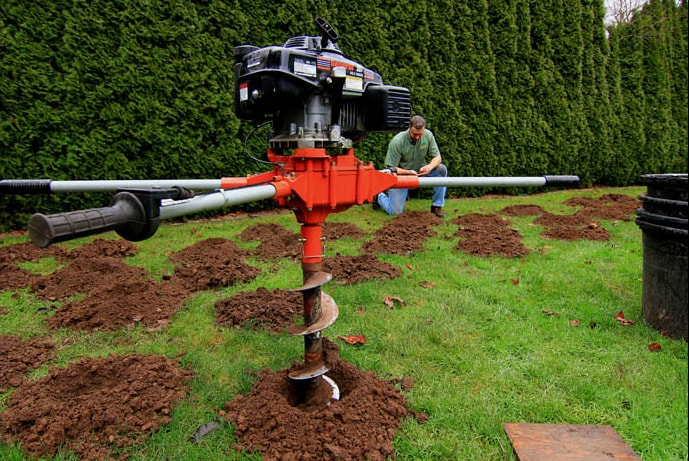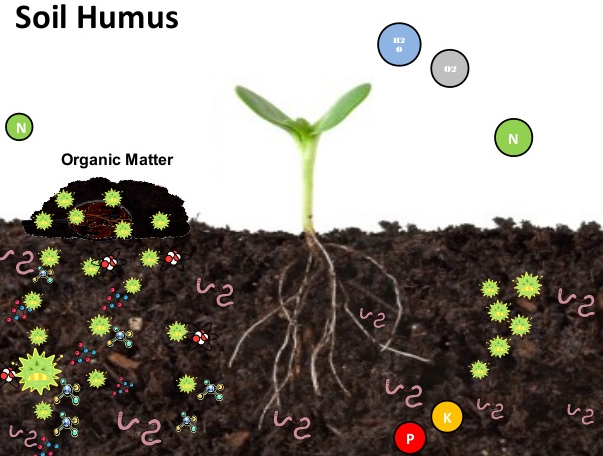Healthy roots are essential for optimum plant growth. They have four main functions that benefit the plants. Roots act as an anchor, healthy root systems will support a larger plant. Roots absorb minerals, water and organic compounds from the surrounding soil. Roots spread food from the leaves through their network in the soil. Roots can also store energy for later use.
 The rhizosphere is the 1mm band of soil surrounding the root hairs. It is an area of intense biological and chemical activity where roots meet microbes. Roots secrete compounds which defend them from pathogens, attract or repel certain microbes, keep soil moist and obtain nutrients. Roots can also change chemical properties of the soil such as pH and can also inhibit the growth of competing plants.
The rhizosphere is the 1mm band of soil surrounding the root hairs. It is an area of intense biological and chemical activity where roots meet microbes. Roots secrete compounds which defend them from pathogens, attract or repel certain microbes, keep soil moist and obtain nutrients. Roots can also change chemical properties of the soil such as pH and can also inhibit the growth of competing plants.
Although there are pathogens in soils, most organisms work together with plants and are beneficial for plant growth. Microbes can encourage growth by producing vitamins, antibiotics and hormones and also finding nutrients the plants can’t access by themselves. They can also stabilize the soil by building aggregates, which are complex blended soil structures that improve growing conditions for roots.

Providing adequate oxygen is essential for plant root health and development. In all types of gardens supplying oxygen needs to be a priority. When using a medium of any kind provide components that are good for drainage. Be cautious, too much drainage can let roots dry out causing problems. The more oxygen roots have the lower the chances of pathogens harming your plants.
Using organics is beneficial in all circumstances although their application and benefits can be limited in some situations. In soil gardens you should use nothing but organics in order to foster the high level of biodiversity that can be achieved. Even a soilless growing medium can be brought to life with organic amendments. In a water based system cautious use of some organics can provide benefit (ex. Kelp or Aerobic compost tea) but remember that biological activity can cause foaming in a reservoir and also organic particulate can build up and cause problems in your irrigation system.
 Humus is a base form of decomposed organic matter. This material has many complex benefits including increasing the availability of some nutrients. In soil and soilless gardens it can be worked in as compost, worm castings or humic extracts. In a water system your only option are humic extracts which can improve nutrient availability and other benefits without the sediment of different types of compost.
Humus is a base form of decomposed organic matter. This material has many complex benefits including increasing the availability of some nutrients. In soil and soilless gardens it can be worked in as compost, worm castings or humic extracts. In a water system your only option are humic extracts which can improve nutrient availability and other benefits without the sediment of different types of compost.
Growing plants can be as straight forward as putting a seed in the ground and waiting. To get the most from your plants an understanding of what makes them grow is important. Observing the garden and the plants is the key to building a stronger knowledge base and a better experience over the long term. Understanding the science is the key to maximum yields.
